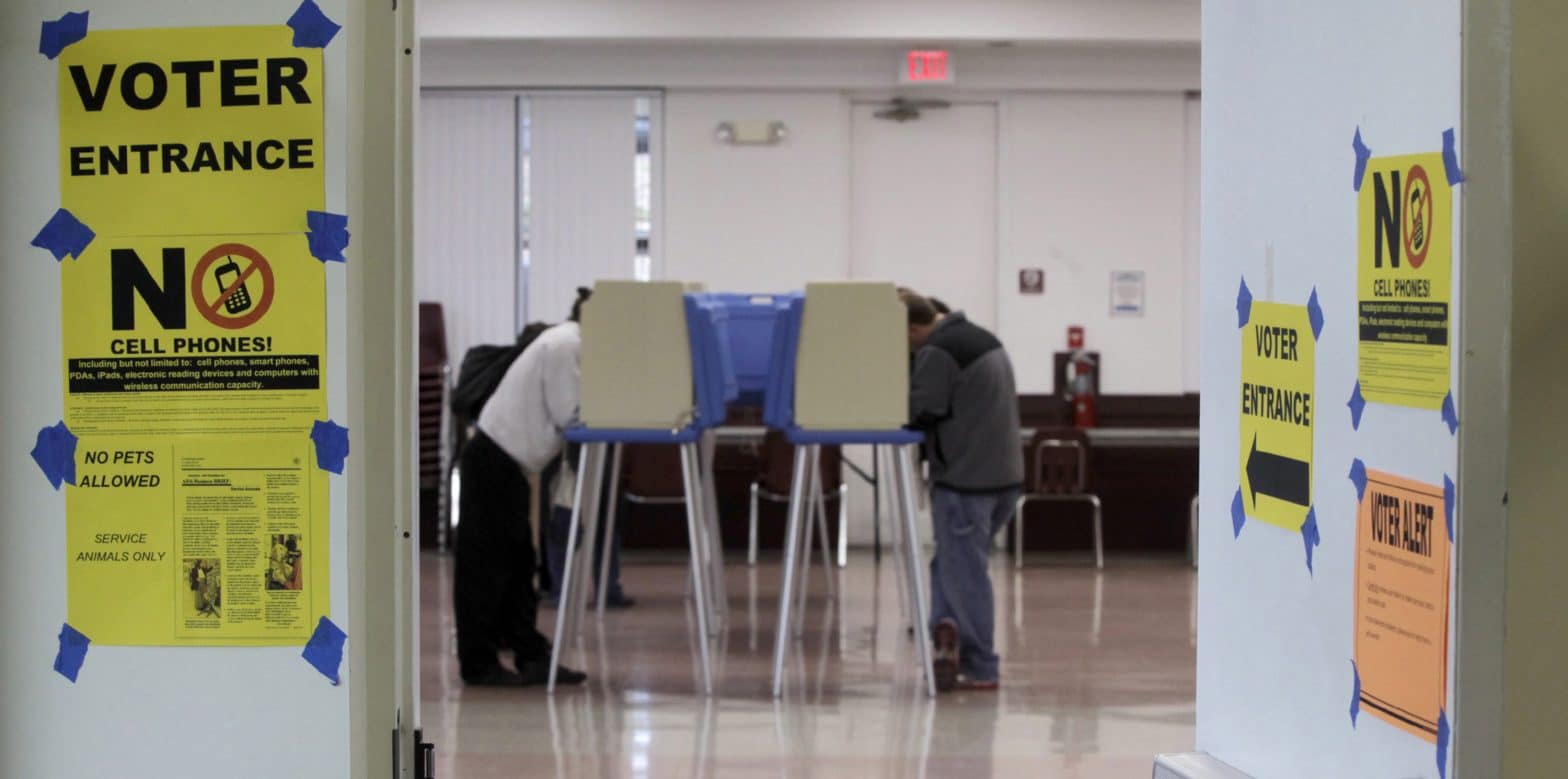Supreme Court Justices Struggle With Where to Draw the Line on Partisan Gerrymandering

As the U.S. Supreme Court waded into a pair of gerrymandering cases on Tuesday, a majority of the justices struggled mightily with the question of just how a federal court can fairly determine when state legislatures have been too partisan in drawing maps for voting districts.
While the high court has decided several cases over the years having to do with gerrymandering on the basis of race, it has never struck down a voting map as an unconstitutional partisan gerrymander.
Instead, the justices have said that because redistricting itself is a political act, courts would be hard-pressed to apply a bright line legal standard that would separate acceptable partisanship from the kind that is unconstitutional.
The cases before the court on Tuesday were long-running challenges to congressional redistricting plans that gave an advantage to Republicans in North Carolina and to Democrats in Maryland.
And the most watched justice was newcomer Brett Kavanaugh, who has never had to rule on gerrymandering before and could be the deciding vote in these cases.
“Extreme partisan gerrymandering is a real problem for our democracy. I’m not going to dispute that. But there’s a fair amount of activity going on in the states to deal with it,” Kavanaugh said.
State supreme courts have ruled on the issue, he noted, and a number of states, including Colorado, Michigan and Utah, had ballot initiatives in the last election that established nonpartisan redistricting commissions.
“Have we really reached the moment, even though it would be a big lift for this court to get involved, where the other actors can’t do it?” he asked.
Justice Neil Gorsuch was among those in the chamber who seemed to agree.
“Why should we wade into this when there are alternatives that exist?” he asked.
In making these assertions both justices appeared to be heeding a warning from Paul Clement, the Washington lawyer representing North Carolina’s legislature, who had earlier told them, “If you get into this business, once you get into the political thicket, you will never get out.”
But Justice Stephen Breyer was unbowed by the comment, proposing a numerical test that would say a line is crossed when a political party in the minority ends up with two-thirds of a state’s congressional seats.
When he was done describing it and looked to his colleagues on the bench, however, he appeared to have no takers.
And in that way Tuesday’s opening arguments were very much like the arguments before the court last year when it heard the Maryland case, Lamone v. Benisek, for the first time alongside a separate pending case from Wisconsin.
In Lamone, a group of Republican voters claim Democratic state lawmakers dramatically redrew a district that had long been a GOP stronghold so that it included scores of additional Democrats.
In fact, the new map drafted after the last census moved 350,000 Republicans out of the district and 360,000 Democrats in.
The plaintiffs contend there was no good reason to redraw the district that way and that the new district violated the First Amendment by diluting their voting power.
After hearing the case last year, the justices acknowledged partisanship can be unconstitutional in some instances, but failed to come up with a reliable legal test for determining when.
They returned the case to the U.S. District Court in Maryland, directing a three-judge panel to try to resolve the matter. When it did, in favor of the voters, the state appealed, sending the case right back to the justices.
Which was likely one reason some of them insisted a workable solution had to be found, sooner rather than later.
“We’re leaving it to the professional politicians who have an interest in perpetuating their own representation,” Justice Elena Kagan said.
“We need to have a number or some formula, otherwise, every case is going to come to this court,” an exasperated Justice Gorsuch said.
The North Carolina case, Rucho v. Common Cause, is an appeal from an August 2018 decision in a three-judge panel in Raleigh that said Republican legislators had violated the Constitution by drawing the districts to hurt the electoral chances of Democratic candidates.
In 2016, the court noted, Republican congressional candidates garnered 53 percent of the statewide vote, but still managed to win in 10 of the 13 congressional races that year. In 2018, despite an increase in the Democratic vote, Republicans still managed to hold onto their 110 districts.
On Tuesday, Chief Justice John Roberts described the situation in North Carolina as “an extreme case,” but then cut right to the heart of the matter. It isn’t enough for the justice to say either map in unlawfully flawed, “we have to find a rule that will apply to other states” for determining when partisanship is so blatant that it crosses a constitutional line.
A decision in the two cases will be issued by late June.






















